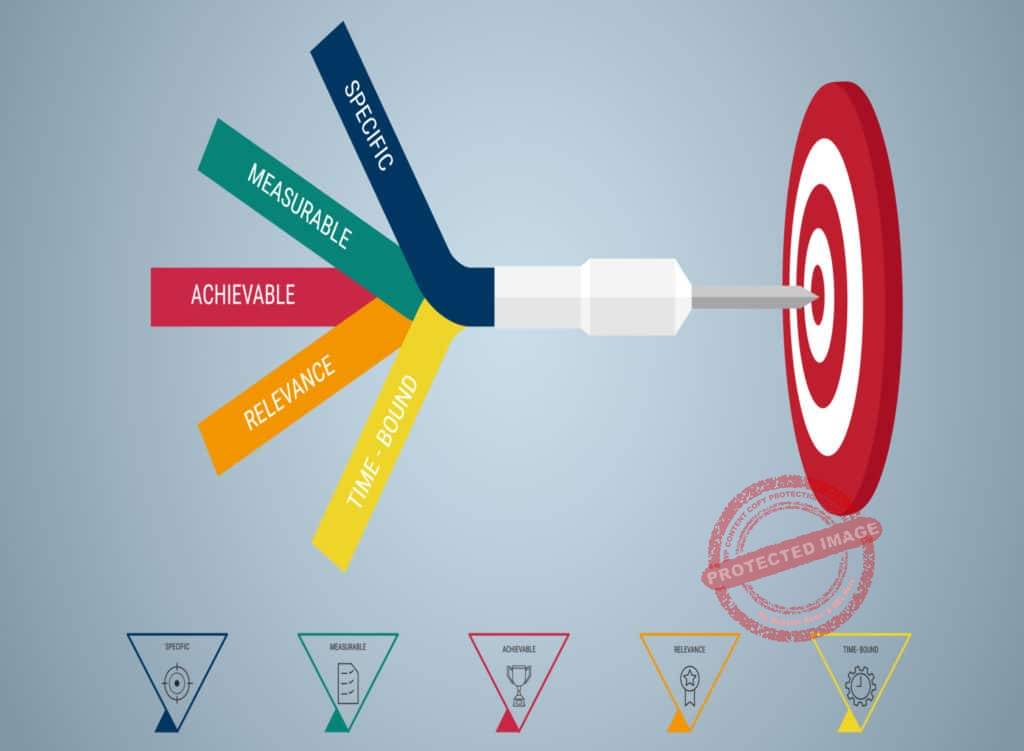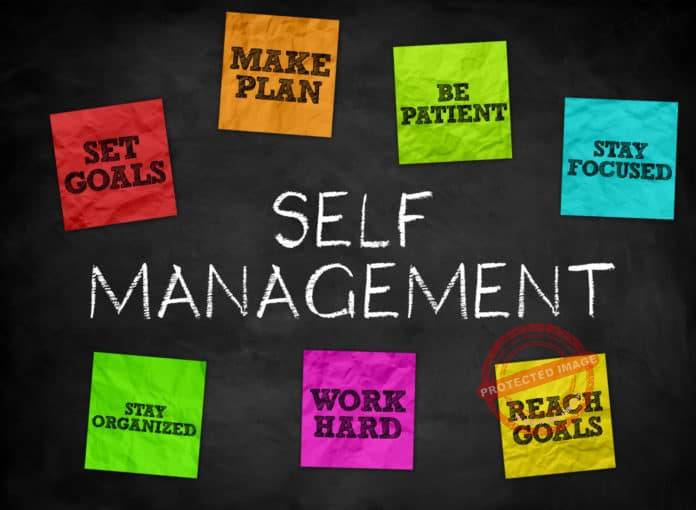As a leader, it is understandable that for you to be able to manage others, you should have mastered how to manage yourself, right?
Do you remember these sayings?
To be able to lead is to be able to follow.
If you’re going to talk the talk, then you’re going to have to walk the walk.
Practice what you teach.
Actions speak louder than words.
You’ve heard the rest of them.
The above are old sayings that appear to have lost their impact in our daily lives that they’re now considered clichés.
Having been originally used to point out the gap between someone’s words and actions, their meanings now seem lost.
This should not be the case.
In the business world – or anywhere for that matter – words and actions should agree.
This is especially so if you hold a leadership position.

Whereas the qualities of the leader are as important as his or her leadership style; leadership qualities are often a reflection of team qualities.
So if you’re a leader who is preaching something that you don’t practice, the gap is noticeable.
As a consequence, your team may question this gap.
They may even question your credibility and authority.
Worse, they may not conduct themselves as you ask because they don’t see it in you.
In this article, let’s look at five things.
First, let’s define what self-management is.
Second, let’s talk about the three factors that may influence how you conduct yourself before others.
Third, let’s talk about what you need to do in order to start managing yourself.
Fourth, let’s look at the skills that you can develop to start leading yourself.
Finally, let’s look at some of the actionable steps you can take on how to manage yourself.
What is Self – Management

Self-management is defined as; 1 – your ability to evaluate a set of possible responses to a variety of situations and 2 – your action based on the one situation that results in a good, if not a better, outcome.
In turn, self-management skills are a set of competencies that help achieve effective self-management in almost every aspect of your life.
The fact is that everyone can develop or acquire self-management skills but not all can utilize these skills in order to effectively manage themselves.
As a consequence, results may fall short of organizational goals and personal capability may be jeopardized.
So what crucial factors are at play when it comes to conducting yourself?
The Three Influencers Of Conduct

*Note: To clarify, ‘conduct’ in this context means ‘the way you behave.’
Everyone who leads brings something into an organization.
And you’re not an exception.
Leadership style and results aside, you bring in three critical things that will affect your ability to lead both yourself and your team: your values, your beliefs, and your attitude.
Your values are your standards of behavior.
They dictate what’s important in your life and the process with which you make decisions.
So it may not be obvious to you but the values you identify with heavily influence the way you make decisions.
Your beliefs are everything that you feel are true even if proven otherwise.
This includes how you view leadership, how you feel a leader should act, and how you expect your team members to interact with your leadership style.
Finally, your attitude is the manifestation of both your values and beliefs.
This is what people see through your words and through your behavior.
In most cases, your attitude is the basis of people in judging whether or not you’re ‘walking the talk.’

For instance, if you’ve grown up without much regard for the importance of time (values), then you may consider it acceptable to not honor any time-bound commitments (belief).
As a result, you always come late, you make people wait, and at times, you simply don’t show up (attitude).
You may be thinking right now that there are rules everywhere, and organizations are not an exception.
That point is valid, but note that obedience to the rules doesn’t mean agreement.
In smaller business units such as teams, personal values, beliefs, and attitudes often influence a group’s team efforts.
Besides, the true test of poor self-management does not come from someone in the organization. It comes from within you.

Other people may help point out the gap between how you manage yourself and how you manage others.
What you do about it depends on you.
In most cases, the recognition of this gap is present e.g. you may have thought that you’re not an effective role model for your team because you’re always late.
It may have occurred to you that your team is disobedient because there’s a contrast between what you say and what you do.
If at any point in your life, you’ve questioned your own inability to match your words with your actions, then you’re right to be concerned.
You’re also right to seek for ways that can help you to become better.
So how can you start leading yourself so that you can start leading others?
How To Start Managing Yourself
Start With Self-Examination

This is the most difficult part of getting ready to change for the better.
For one, you know that you may end up changing some of your old ways.
Two, it involves honesty while you’re appraising yourself.
And three, it may mean struggling with yourself in order to accept what’s objectively true.
However, you have to think about the reason you’re doing this.
If changing yourself in order to become a better leader is important, then you know the stakes if you allow emotions to rule your self-exam.
When you reflect, think about the things that you’re asking from your team that you’re not actually doing.
Are you asking them to come on time when you’re a chronic latecomer?
Are you asking them to open up to you when you’re not that transparent?
Focus on where the gap is between what you’re showing other people versus what you’re expecting from them.
This is supposed to be and it will be an enlightening experience for you.
Proceed With Others’ Feedback

In an organization, it’s common to hear what your team says about you from other people, especially if it’s negative.
Obviously, this in itself is a red flag because it means that your own team can’t even give you feedback directly; but that’s a different topic altogether.
The general rule is if negative feedback only comes from one person, you can discuss it with him or her on another day.
However, if the same negative feedback comes from two people, then you know that you need to fix things.
What if all members of your team are in consensus?
Group consensus is one tool for persuasion.
Have you noticed how your self-confidence has improved after everyone in your department or your organization complimented you on how you aced that meeting?
The same works for negative feedback.
So as you reflect on yourself, think about the times when you thought that everyone else was against you.
What did they say?
Did they highlight any features of your behavior?
What part of your speech did they not like?
Continue By Readjusting Your Values, Beliefs, And Attitude

Readjustment doesn’t mean total surrender.
It only means that in view of a common goal, how you conduct yourself should be the same with your team.
The goal we’re talking about here is your organization’s goal.
And you know very well that goals are better achieved if the different elements comprising an organization moves as one.
So to realign yourself, think about what your organization’s goals are.
From those goals, think about the expectations that higher management has set.
Then, from those expectations, think of the team-level expectations that you have set.
From there, assess whether or not, as an individual who is a part of an organization, you have met those expectations.

If you’ve answered no, it’s time to dig into the ‘why.’
Could it be that you don’t believe in your organization’s goals?
Do you even believe in goals?
Do you consider success to be important?
Also, do you consider your role as important in the goal achievement?
Importantly, do you consider your team as crucial to the success of the organization?
Afterward, Publicize Your Intentions

You may be among the many people who believe that admitting your mistakes and striving to change is a sign of weakness.
You may also believe that doing so causes others to be more resentful.
You’re wrong.
People who admit their faults and who acknowledge the opportunity to change actually get more respected.
It takes guts to admit a mistake, more so the intention to make a change.
Doing so isn’t called ‘embarrassing yourself’, it’s called ‘humility.’
Finally, Be Accountable For Your Next Actions

The moment you’ve announced your intention to change, you’ve become accountable for it.
But do you know what’s more helpful?
It’s being accountable for others and not just yourself.
If you’re accountable to others, it means that you can’t disappoint them.
It also means that you can’t afford to have other people accuse you of not following through with your promise to change.
That moment when you made your announcement is the start of an invisible countdown.
People will be watching and waiting to see what happens; whether you’ve succeeded at improving yourself or not.
Self – Management Skills

We mentioned earlier that anyone can acquire self-management skills.
However, not everyone can apply them in order to truly manage themselves.
But if you’re wondering what these skills are, then take a look at some of them below.
You may find that you have most, if not all, of them.
Planning And Goal-Setting

This includes:
- Knowing the source of your motivation in pursuing your goals
- Establishing SMART [Specific, Measurable, Achievable, Relevant and Time-bound] goals
- Creating strategic plans in order to achieve your goals
- Aligning your actions towards the achievement of your goals
- Evaluating the likelihood of you achieving your goals
- Making adjustments in order to achieve your goals
- Delaying immediate rewards in favor of long-term rewards
Time Management

This includes:
- Using your time productively and efficiently
- Keeping track of your progress in view of the time you have
- Making estimates about how long a task would take
- Meeting deadlines
- Adjusting your timetable to accommodate unexpected tasks or changes
Organization

This includes:
- Knowing what your priorities are
- Setting your priorities
- Doing the most important tasks first
- Organizing information so that you can easily retrieve them
- Organizing the tangible things around you so that you can easily find them
- Managing your daily activities in order to make room for doing the things you love
- Approaching delicate situations strategically
Adaptability And Flexibility

This includes:
- Effectively interacting with people from diverse backgrounds
- Entertaining feedback; asking for it
- Acknowledging suggestions
- Responding to comments
- Knowing when to stop and when to ask for help
- Being resilient [tough] toward change
- Coping with unexpected situations
- Adjusting your approach with respect to how others are feeling, thinking, etc.
Health Management

This includes:
- Getting enough sleep
- Not working too many hours
- Knowing that there is life after work
- Exercising regularly
- Maintaining a diverse set of activities to fuel interest
- Avoiding activities that can lead to stress
- Knowing when outside support is needed
- Understanding that daily stress can be managed
- Awareness that you run the day and not the other way around
By now, you must be aware that there are observable components in your conduct that are the opposite of what you say.
You must also know that the only key to changing for the better is you.
If you accept both, and you’re willing to change, read on as we move to discuss some tips on how to manage yourself.
How To Lead Yourself
Act With A Purpose

You can’t start to lead yourself if you don’t find purpose in doing so.
So ask yourself: what is your goal in learning how to lead yourself?
Is it so that others will follow after you?
Is it so that others will respect you?
You can come up with as many reasons as you can.
What’s important is that you’re going to act with a purpose.
Act With Confidence
Don’t let fear or uncertainty get the better of you.
You may not have managed yourself before, but understand that getting started now could be one of the best decisions you’ve made in your life.
Learning how to manage yourself can affect all areas of your life.
It’s much like a life skill.
You may survive in unknown territories if you know how to face uncertainty with confidence.
Have Discipline; Respect Time

That is your own time and the time of others.
If you manage your time well, you’ll find that you’re not making other people wait on you and that you’re actually not wasting your company’s time.
You will also see that you’re meeting deadlines and that you’re actually making progress in terms of your organizational timeline.
Ask For And Provide Constructive Feedback
Asking for feedback is one way to gauge if you’re getting closer to your goal.
With your intention of effectively leading yourself, you need others to provide you with objective feedback of where you stand.
If you ask for feedback, you must know how to listen.
In turn, when someone asks your thoughts on something, you must be honest but polite, and constructive.
Become An Active Participant In Your Team

When you are actively involved in your team, your people will appreciate you.
That’s because you’re breaking that popular barrier that keeps managers and team members apart.
In doing so, you’ll see your team members’ perspective on things concerning your organization.
This perspective will help you pave the way for improvement.
Plan How Your Day Goes
You can’t let the day run you.
To effectively manage yourself, you must be in control of what happens during your day.
You can’t bend everything to your will, but you can certainly plan the things that you’re supposed to do, the places where you’re supposed to go, and the people you ought to talk to.
The more you plan, the more you accomplish.
Learn To Say ‘No’

You can’t agree to everything.
Know that your time is limited and that it’s better spent doing something productive.
It’s not wrong to let time pass by once in a while, however, when leading other people, you know better than to indulge yourself.
Align your activities to your goal and every step you take will get you closer to it.
Acknowledge The Limits Of Your Abilities
You can’t possibly know everything.
There are times when you have to ask for help.
Asking for assistance is not a sign of weakness.
It’s actually a chance for you to learn something new.
It’s also a chance for you to appreciate other people’s skills and knowledge.
And what’s more?
It’s a chance for you to express gratitude and to make someone’s day a lot better.
Have Initiative; Be Proactive

Make something happen rather than wait for it to happen.
Create ideal scenarios rather than respond or react to existing situations.
When you are proactive, you are taking the lead on something.
Just make sure that you choose your battles well and you can own up to your actions.
And if you can, go the extra mile.
Know When To Step Up, To Step Down, And To Step Aside
There are times when you need to stand up and stand your ground.
There are times when you have to yield.
And there are times when you simply have to keep your distance.
Don’t immerse yourself in battles that you can’t win.
Neither should you involve yourself with issues that do not directly affect you or your team.
Focus on what you ought to be doing and succeed in it.
Be Transparent; Be Trustworthy

If needed, explain to your team why this or that needs to be done.
Sometimes, people need to understand the relevance of something before they act on it.
This means you must take the time to explain to them what’s going on.
When it comes to making decisions, make sure that your team can count on you to stand with them.
There’s always room for compromise, and you always have a choice.
Managing yourself means adjusting your behavior so that you can get the results you want.
Whether that involves leading others or achieving something personal, it pays for you to be consistent so that you can accomplish great things.
Has this article been helpful to you in understanding ways you can manage yourself?
Do leave us your comments!
Click on Buy Now For a PDF Version of This Blog Post
 |










